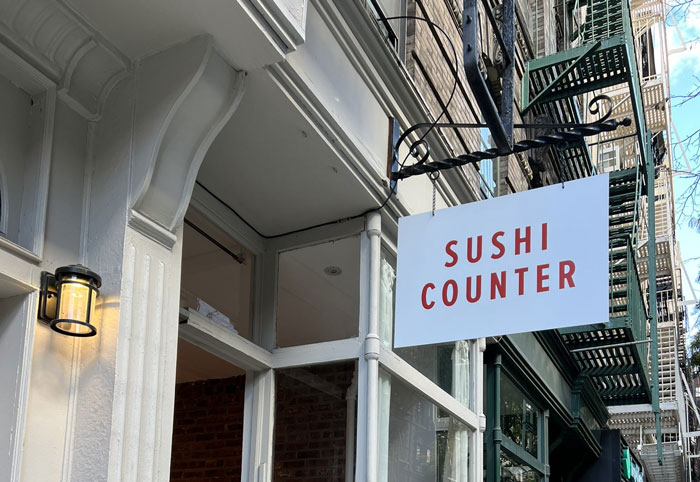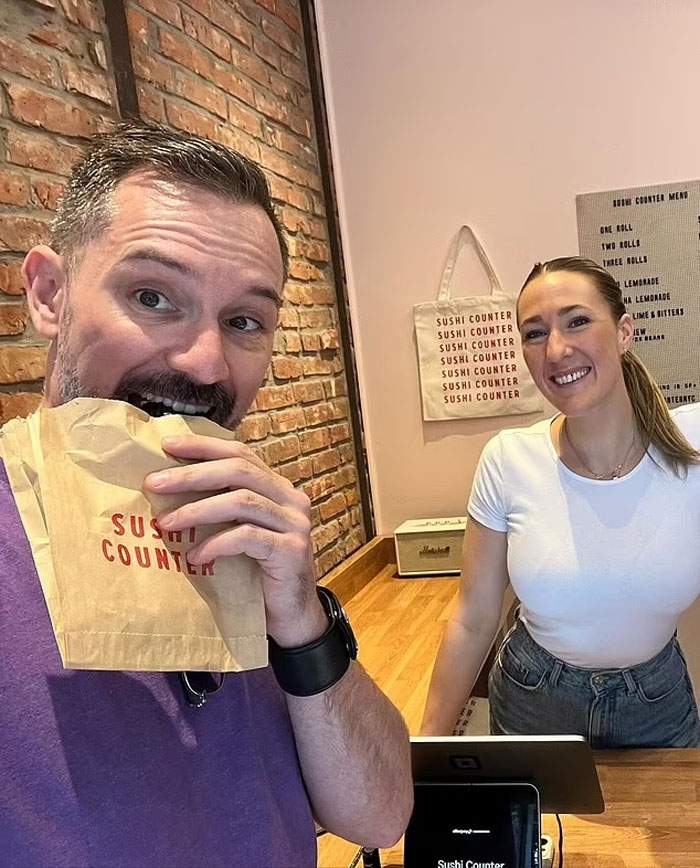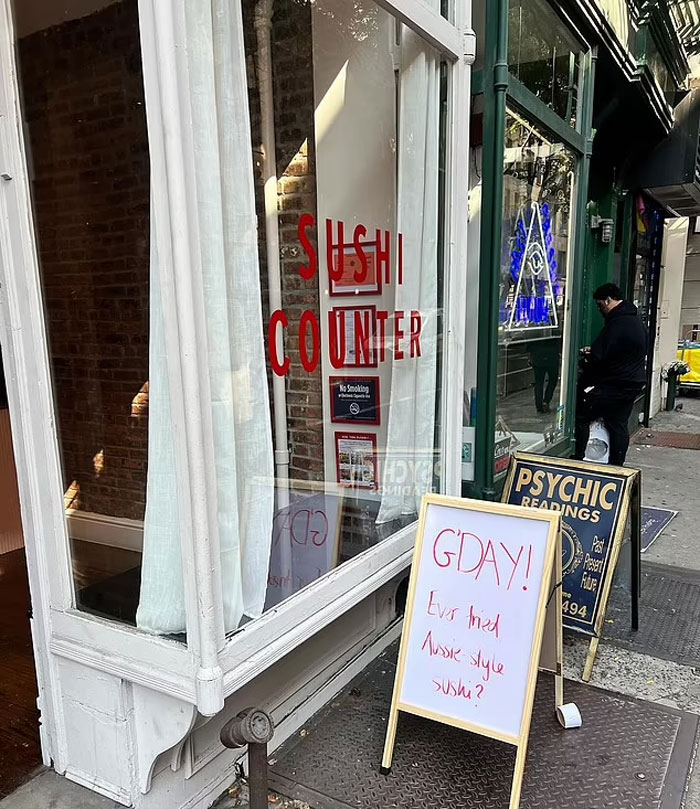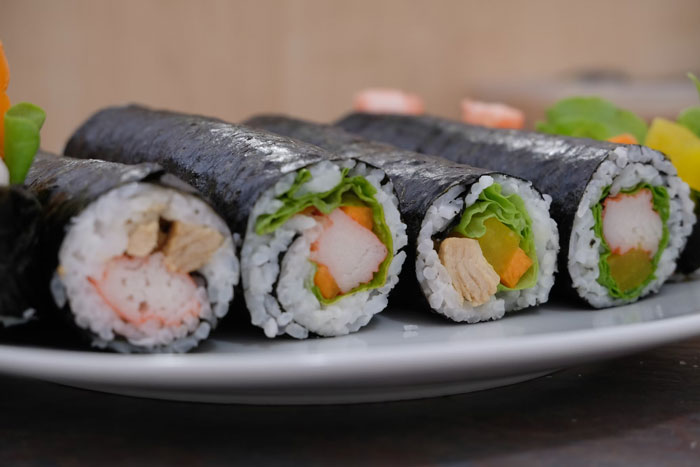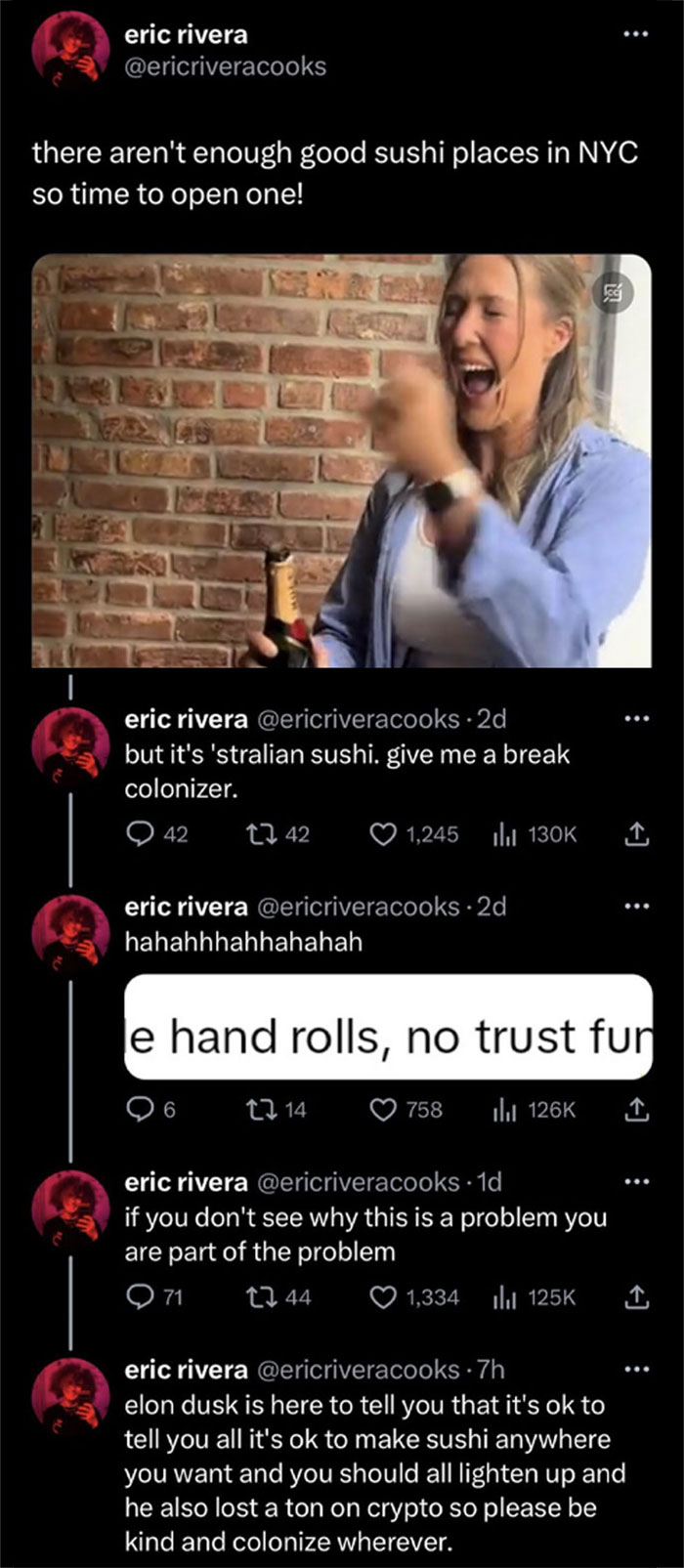In the age of social media, where information flows rapidly, it is safe to say that accusations of cultural appropriation are not taken lightly.
One hospitality worker learned this the hard way when she decided to launch her own business of a certain oceanic cuisine in the city that never sleeps.
Listen beautiful relax classics on our Youtube channel.
An Australian woman was accused of cultural appropriation as a result of opening a sushi shop in New York City
Image credits: @ns_whit
Alex Marks, an Australian entrepreneur, recently opened a sushi bar specializing in what she refers to as “Australian-style sushi”, in New York City’s West Village.
She has since been accused of cultural appropriation by Americans who raised objections due to her non-Japanese background.
Alex, who used to be a lawyer, was subsequently nicknamed “Sushi Sheila”, in addition to being called a “colonizer”, receiving one-star Google review marks as a result of her white ethnicity.
Alex Marks refers to her products as “Australian-style sushi”, whilst her shop is based in New York City’s West Village
Image credits: dailymail
The trolling victim initially garnered recognition on TikTok when she shared her journey of leaving her corporate job to establish the sushi counter in the Big Apple earlier this month.
She has since gone on to create an Instagram account called by her shop’s name, Sushi Counter NYC, which has only six posts for now, and is followed by 1,792 people. As of today (October 27), the comments have been disabled.
Following the backlash, Sushi Counter NYC has turned off the comments on their Instagram page
Image credits: dailymail
The Aussie entrepreneur has also created a TikTok account for her business, which, despite having not a single video posted yet, has amassed 16.8 thousand followers.
According to her social media page, Sushi Counter NYC is open from Wednesday to Sunday only, and runs from 12pm to 3pm and from 5pm to 9pm.
The eatery’s online site offered “Australian-inspired” sushi with options such as teriyaki chicken, spicy tuna, and avocado-cucumber rolls, all available at an affordable cost of $5 per roll or three for $12.
The website states: “We do one thing (and we like to think we do it well) – Aussie-style hand rolls. We may have a small footprint here in the West Village, but we have a big dream – to make fresh, yummy hand rolls you can afford every day of the week.”
Sushi Counter NYC offers options such as teriyaki chicken and spicy tuna, all available at an affordable cost of $5 per roll or three for $12
Image credits: dailymail
According to the Easy JapaneseE blog, in Japan, most sushi rolls are much thinner than those in Australia and usually have one filling only.
Listen beautiful relax classics on our Youtube channel.
Common fillings are: raw tuna, eggs (sweetened omelette) and cucumber.
“If you see fat rolls, they are usually fatter than those you see in Australia and are served sliced like a disc,” the blog states.
A blog focused on Japanese culture explained the difference between Australian and Japanese sushi
Image credits: Ron Sinda (not the actual photo)
Nevertheless, Alex’s aspiration stirred such strong emotions in Seattle chef Eric Rivera that he vented his frustration on social media, accusing the Aussie of cultural appropriation.
Seattle chef Eric Rivera vented his frustration on social media, accusing the Aussie of cultural appropriation
Image credits: dumbbi**hcap
In a now-deleted post on X (formerly known as Twitter), Eric wrote: “There aren’t enough good sushi places in NYC so time to open one!”
“But it’s ‘stralian sushi. Give me a break, colonizer. If you don’t see why this is a problem you are part of the problem.”
As reported by news.com.au, one of Eric’s followers called Queer Latifah said: “The contradiction & cognitive dissonance is maddening.”
“[Marks] feels she can’t ‘afford’ decent sushi in NYC, a place that has one of the largest & vastly diverse Asian populations? So instead, she finances her own sushi spot. Colonization is white & quite scary to see in real time.”
Another person chimed in and accused the Australian entrepreneur of white colonization
Despite the overwhelming backlash Alex has faced online, she has also received support.
Ed Krassenstein, a political commentator known for his criticism of Donald Trump during his presidency, wrote on X: “Others called her racist, bigoted, and even worse. Why? Because she isn’t Asian. To me this is absolutely absurd. Just because you aren’t Japanese doesn’t mean it’s wrong to open a sushi restaurant.”
“Should people not of Italian descent not be allowed to sell pizza? Should people not of Latvian descent be called racist for selling mittens? Sheila isn’t a racist! She’s an entrepreneur. Stop being outraged over nothing!”
Despite being flooded at first with one-star reviews, Alex’s sushi shop received five-star ratings on Google, elevating its overall score to an impressive 4.8 stars
Image credits: dumbbi**hcap
Alex removed her personal content from her TikTok account, but over time, the situation took an unexpected turn as other users on the platform started sharing positive videos criticizing cancel culture advocates.
Shortly, a deluge of five-star ratings inundated the restaurant on Google, elevating its overall score to an impressive 4.8 stars.
Image credits: dumbbi**hcap
As explained by Anti-Racist Daily, cultural appropriation is the misuse of “creative or artistic forms, themes, or practices” of marginalized communities by socially dominant groups.
The University of Wisconsin-Madison stated that examples of mainstream cultural appropriation can include adopting a false or mocking accent of a culture or language, sports teams with offensive names or mascots, and a fashion designer creating pieces dedicated to a culture they don’t belong to and not involving cultural members to participate in the design process or the fashion show.
The institution also mentioned that an easy way to remember the difference between cultural appropriation and cultural appreciation was to remember that cultural appreciation is about honoring a culture whereas cultural appropriation is dishonoring or demeaning a culture.
Some people on social media pointed to Chef Eric’s alleged hypocrisy
Image credits: dumbbi**hcap
@sophiainsydney #stitch with @Jack Mac #australianfood #australiansushi #newyork #newyorkcity #newyorksushi #newyorkfood #sushicounter ♬ original sound – Sophia In Sydney
A similar incident in the world of showbiz occurred within Netflix’s Selling Sunset, when cast member Emma Hernan introduced viewers to her vegan empanadas business.
According to Elite Daily, Emma didn’t reveal much about her family’s background on the reality TV show, other than to say she was from Boston.
As a result, some viewers have argued that she had no substantial cultural ties to empanadas, a type of baked or fried pastry with filling, rooted in Spanish and Latin origins.
Some people were particularly critical, accusing her of cultural appropriation on X.
While some agreed with Eric’s original thoughts, many others thought the accusations of cultural appropriation had gone too far
The post Online SJW Blasted For Trying To Bring Down Sushi Restaurant Because It’s Run By A White Owner first appeared on Bored Panda.
Source: boredpanda.com
